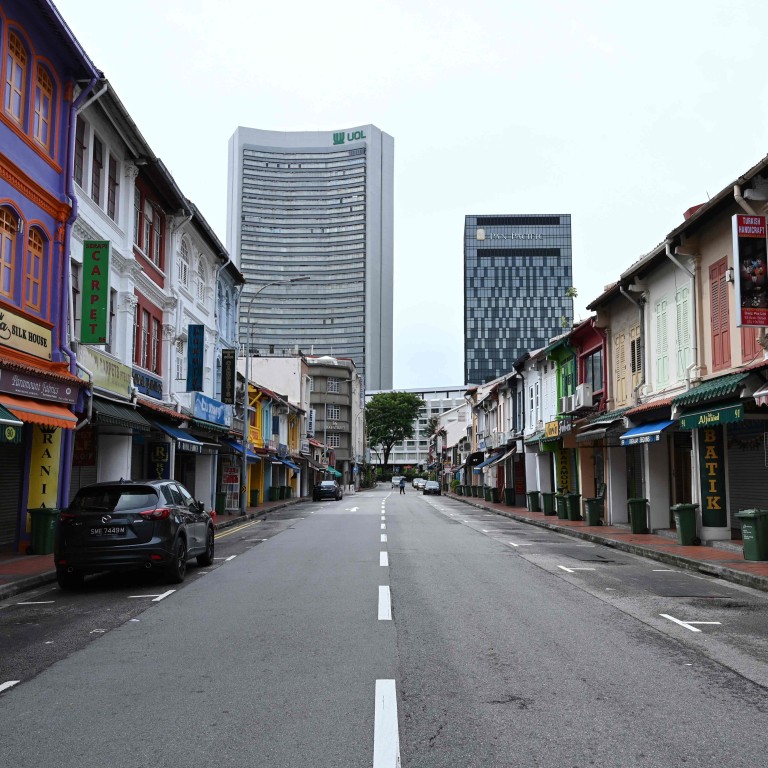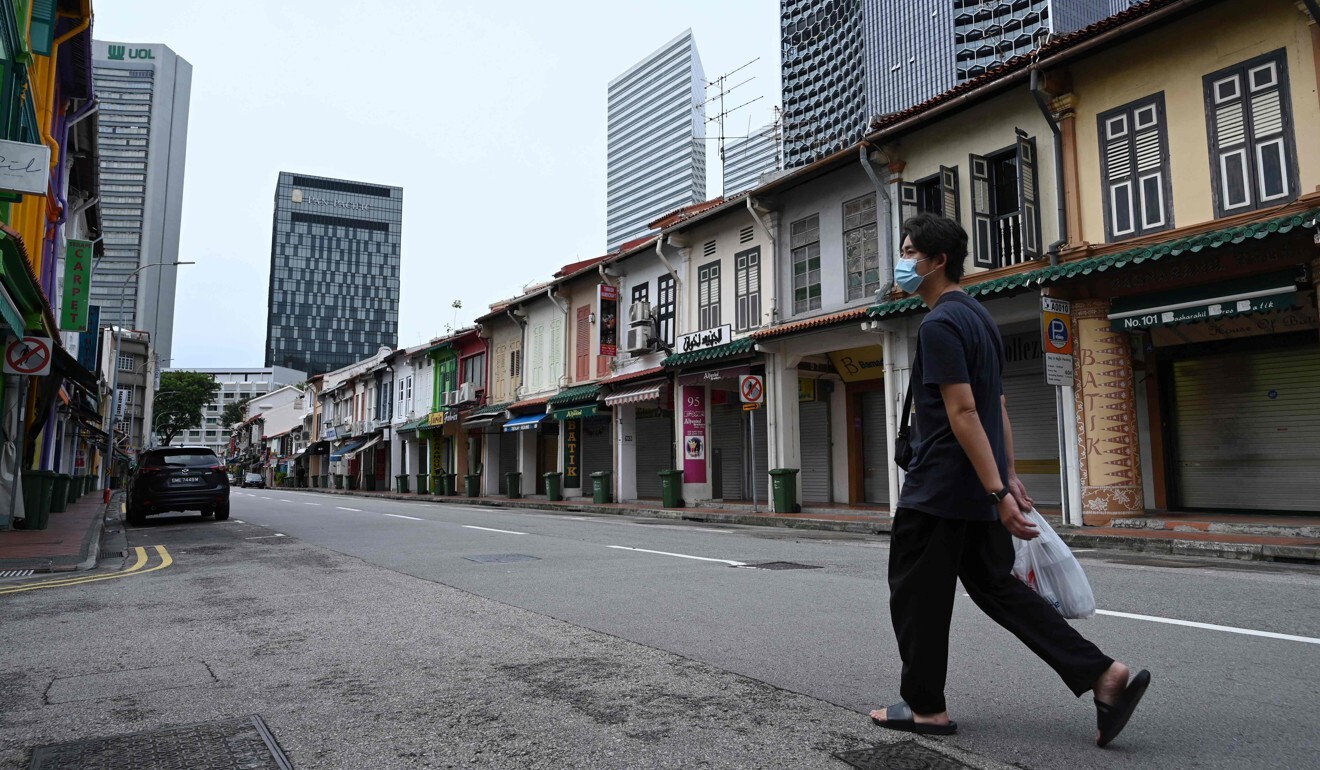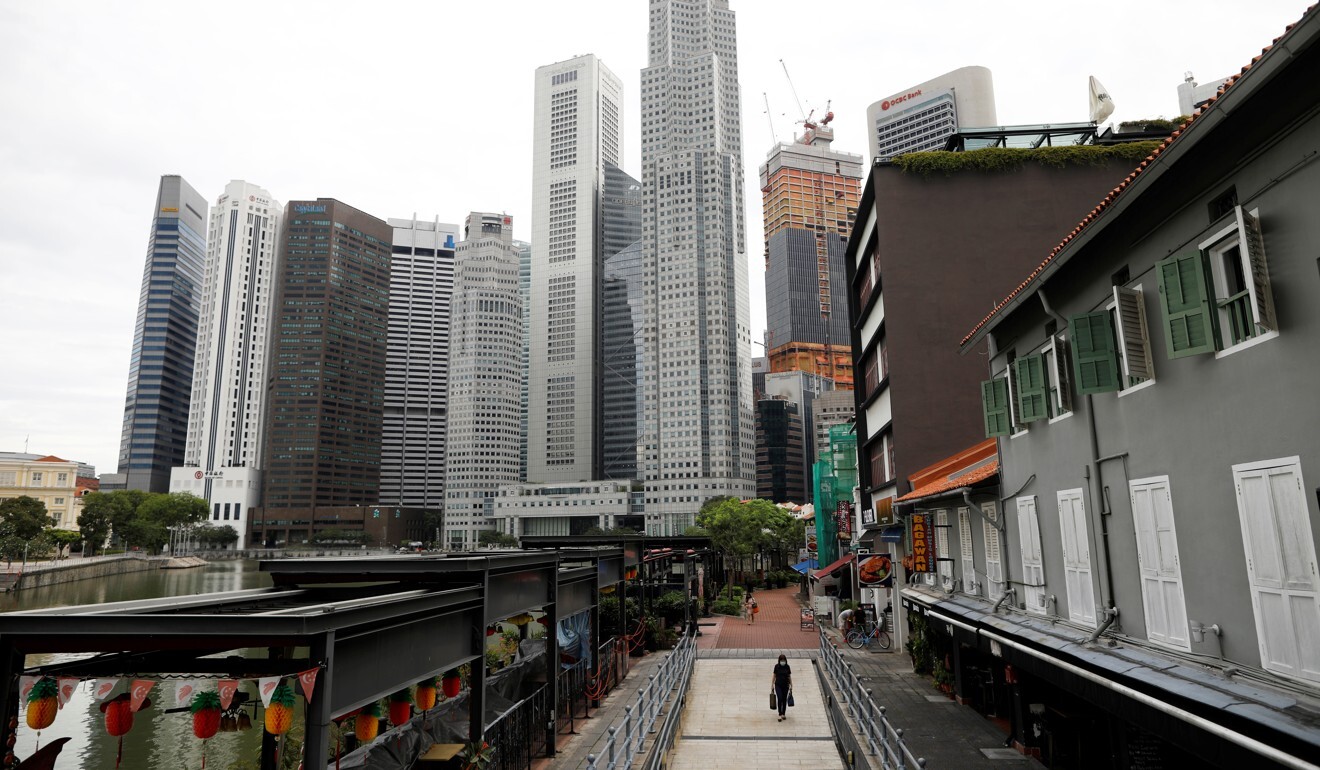
As Singapore funds workers’ wages amid coronavirus crisis, SME bosses ask: ‘What about us?’
- A support scheme that pays workers 25 to 75 per cent of their wages excludes employers, including some 160,000 small businesses and microenterprises
- As thousands of business owners sign a petition for more relief, some observers caution there is no one-size-fits-all approach
For Shawn Loo, creative director and owner of branding and design studio Every Matter, this means about an 80 per cent nosedive in revenue compared to December last year.
“The impact is real,” he said. “If the situation persists, I will need all the help with the cash flow I can get, meaning that I might have to make hard decisions to cut my headcount.”
Singapore unveils US$3.6 billion third stimulus package to beat Covid-19
Like Loo, other business owners say that they are feeling the squeeze of the virus outbreak stronger than ever – even as the Singapore government, over the past two months, unveiled three stimulus packages worth S$59.9 billion (US$42 billion) which would see a drawdown of S$21 billion from the nation’s deep reserves.
Employers in the city state have launched a petition to urge the government to provide greater forms of relief for business owners, that as of Wednesday evening had garnered close to 5,000 signatures.
“While it is reassuring to know that I am not facing this crisis alone and the government is helping small and medium enterprises tide through this period, many owners of small businesses are wondering why they are excluded from the schemes,” said Loo.
He was referring to how the benefits of the jobs support scheme (JSS) – in which the government offsets up to 75 per cent of the first S$4,600 of all local workers’ monthly wages for April, and then 25 to 75 per cent for the remaining eight months depending on the sector – does not apply to employers.
Under the scheme, salaried directors and partners who own their companies cannot claim the wage support for their salaries, and they are also left out from a separate initiative for self-employed workers, which grants a monthly allowance of S$1,000.

This concern was also raised in a letter written by small business owner Delane Lim, which was published on Wednesday in the national broadsheet, The Straits Times.
Lim said he felt enthusiastic when he first heard about the eye-catching budget, but was later “left feeling apprehensive”.
“The staff can go home after a day’s work but we cannot. We have to continuously think of how to save the company and jobs. Shouldn’t this group be considered for wage credit? We, too, have families to feed,” wrote Lim, who is the director of consultancy firm The Afternuat Group, according to his Facebook. “If the company collapses, everyone goes down together with it.”
Singapore looks to punish companies that aren’t social distancing
Similarly, Shawn Koh, who owns a robotics company, said that as much as he tries to protect his employees by paying them and not forcing them on no-pay leave, the nature of his business makes it impossible to work from home – something that the Singapore government is enforcing for non-essential workers.
The firm, which deals with heavy and bulky machineries, was unable to relocate quickly, and has stopped running completely, said Koh, adding that he was expecting losses of up to S$15,000 a month.
“I am counting on the government to assist [small business owners] as much as it can,” he said. “However, the current three stimulus plans do not benefit us, as both a director and employee of the company. It kind of hit me – why are we less deserving of the JSS money?”

There are more than 200,000 SMEs in Singapore, with 160,000 of them classified under microenterprises, meaning that they earn less than S$1 million a year.
He added that Singapore’s one-month partial lockdown, which saw the closure of most workplaces on Tuesday and schools moving to full-time home-based learning on Wednesday, would compound the impact the Covid-19 crisis has on businesses.
“For those SMEs which could not effectively switch to alternative business methods like e-commerce and delivery, it is a basic challenge of survival now,” Low said.
Kurt Wee, president of the Association of Small and Medium Enterprises, said that while he understood employers’ sentiments, there was no perfect strategy or budget and that the current scheme was already “quite a big deal”.
“There will always be some minor gaps because there are also policy and accountability considerations, and how to disperse taxpayers’ money to help the whole ecosystem,” he said.
Singapore thought they had Covid-19 under control, then cases spiralled
Wee said he was conveying the concerns flagged by the business community to the relevant authorities, but stressed that there was a limited pool of resources to go around.
That said, Wee agreed that it would be “very good” if the JSS scheme could cover business owners, especially micro enterprises, who feel the pinch of the outbreak more.
The strength of the scheme is that it prevents potential retrenchments and closures of businesses, Wee said. While the budget might not have saved 100 per cent of companies, Wee said it would help at least 90 per cent of them who were considering sacking workers.
Responding to queries, Singapore Business Federation CEO Ho Meng Kit said that the chamber understood the struggles of employers, but hoped that the budget had addressed immediate concerns such as costs, credit and cash flow, which would help to mitigate the pressures of keeping their business going.
Ho added that businesses registered under the federation had largely acknowledged the budget as timely and impactful, and that they were provided with some form of relief to keep the business alive.
Sumit Agarwal, vice-dean of research at the NUS Business School, said the Singapore government had done more than enough for its businesses, and that owners of SMEs chose to be in the line as some liked the freedom and risks that came with it.
Agarwal felt that if the government started funding employers’ salaries, small business owners would “game the system”.
“They took the risk in life to be an entrepreneur. Being an entrepreneur means sometimes you make too much and sometimes … you will make losses,” he said. “I don’t think the policymakers and taxpayers should be making risk takers completely risk neutral.”


